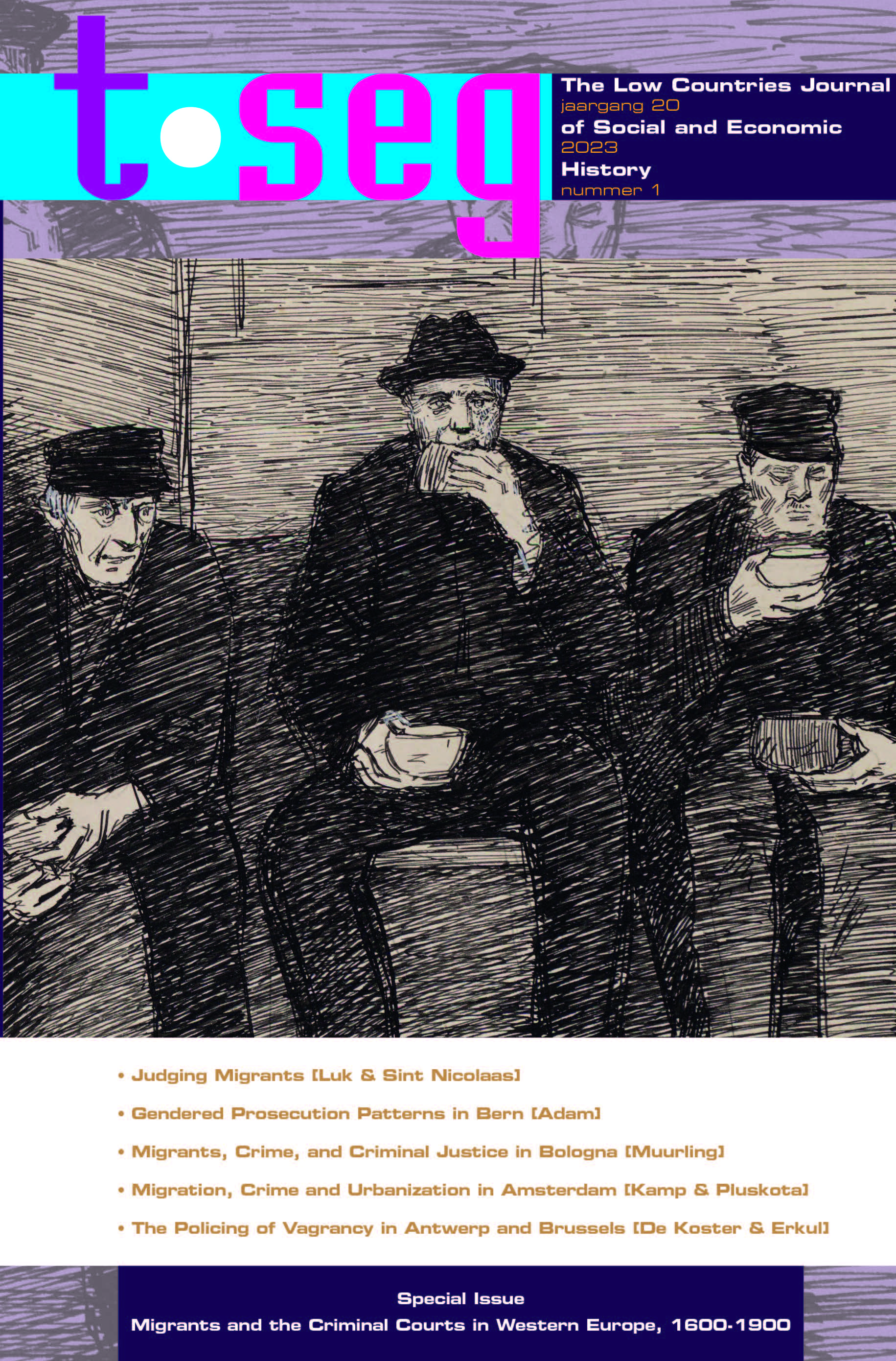Judging Migrants
Towards a new research agenda on social control, local conflict and the judicial position of migrants in the early modern Dutch Republic
DOI:
https://doi.org/10.52024/tseg.8458Keywords:
Migration, Crime/Conflict, Social Control, Uses of Justic, Crimmigration, Early Modern Dutch RepublicAbstract
The Dutch Golden Age is often referred to as a prime example of Dutch tolerance with regard to the ‘open’ policies towards migration and the harmonious co-existence of migrants with their local neighbours. Considering that, before 1800, migrants made up approximately 25-60 percent of the urban communities of the early modern Dutch Republic, and that there is evidence of the rise of many stereotypes about these migrants, this rosy picture of Dutch tolerance is drawn into question. How exactly this tension between tolerance and the persistence of these stereotypes played out in the daily realities of migrants living in early modern Dutch cities remains an understudied area of research. This article identifies the overlaps between existing research in the fields of migration history, urban history and social legal history, as well as the areas in which these approaches can further supplement each other. It does so in order to plead the case for the benefits of an integrated history of crime and migration in uncovering new evidence, themes and patterns in the social history of (urban) migration in the early modern Dutch Republic.
Downloads
Published
Issue
Section
License
Copyright (c) 2023 Karlijn Luk, Samantha Sint Nicolaas

This work is licensed under a Creative Commons Attribution 4.0 International License.






